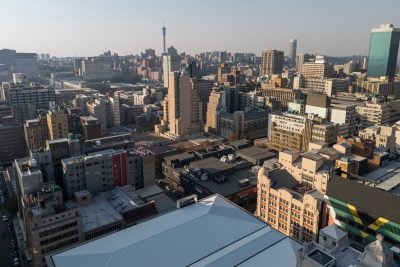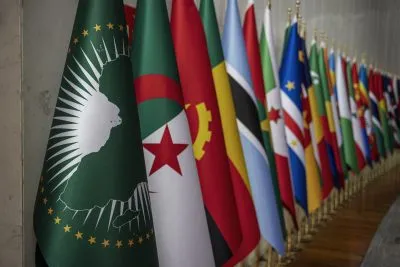Trusting someone with your life is a big deal, but trusting them with your money is not far off. So says Arunma Oteh, the director general of the Securities and Exchange Commission of Nigeria and one of the country’s most successful reformers.
After several difficult years in the global financial industry, which were mirrored in Nigeria, trust is returning to the capital markets, she says, thanks to wide-reaching reforms and a dramatic improvement in oversight.
“I must say that I’ve been pleasantly surprised at how confident people have been in the reform agenda and in returning to the markets,” she says. “My experience has been that the last group of people to return are the retail investors, because a bigger proportion of their disposable income is what has been frittered away. They want to be sure that everything is right before they come back to the market.”
After periods where up to 70% of daily trading was by international institutional investors, Nigerian retail traders have returned and make up just over half of the total volume.
With confidence returning, Oteh, her colleagues at the SEC and allies across government have been working to deepen and broaden Nigeria’s capital markets and articulate their value to the country as a whole.
“We tried to make a case for why capital markets are important, and the role that everyone plays,” she says. “So policymakers, they need to focus on the markets because you can’t have medium-to-long-term financing if you don’t have capital markets that are strong. For the ordinary person you need to save your money. Participants, you need to behave well so that you can earn people’s trust. We had a holistic agenda that spoke to every stakeholder.”
The financial crisis of 2008 ended a run of inflated returns for some Nigerian banks and capital markets players, and the shake-out that followed demonstrated that although the sector had improved, there was still widespread malpractice. Some banks had used their marketing abilities to inflate the value of their own shares, directors had fraudulently used money for personal projects and lending and the integrity of the stock market was widely seen to be compromised.
Backed by the government, the Central Bank of Nigeria (CBN) and the SEC together pursued criminal elements in the banks and the markets and cleaned up both sectors, bringing in outside advice from private sector law firms and using technology to track market abuses. The result was a cleaner banking sector and a cleaner capital market.
Following a major intervention by the CBN in 2009–2010, the banking sector is well-capitalised, with the non-performing loan (NPL) issues that dogged the industry in the immediate aftermath of the financial crisis being addressed. By 2012, banks that had struggled were back into profitability, and $6 billion worth of NPLs had been moved into a special vehicle, the Asset Management Company of Nigeria (Amcon).
This was designed to unlock capital for lending to the real sector and small businesses, which were suffering from a lack of access to finance.
Improving financial inclusion in a country where around 40% of the population has no access to formal financial services has also been a major drive, with the Ministry of Agriculture and the Ministry of Information and Communication Technology both working with the financial industry and the CBN to extend services.
The challenge of operating as a regulator or policy maker in the financial services industry and capital markets, Oteh says, is articulating why interventions matter to ordinary people, in terms of creating jobs and opportunities and providing services.
Part of this process has been to try to make the market more representative of the wider economy. As the CEO of Financial Derivatives Company, Bismarck Rewane, says: “The capital markets are a proxy for the economy as a whole, but in Nigeria we have a situation where the markets are not reflective of the economy.”
Manufacturing and financial services are over-represented on the index, he explains, while upstream oil and gas have virtually no presence. Agriculture, which the government hopes will become a major part of the country’s future economy, is also under-represented.
Want to continue reading? Subscribe today.
You've read all your free articles for this month! Subscribe now to enjoy full access to our content.
Digital Monthly
£8.00 / month
Receive full unlimited access to our articles, opinions, podcasts and more.
Digital Yearly
£70.00 / year
Our best value offer - save £26 and gain access to all of our digital content for an entire year!
 Sign in with Google
Sign in with Google 


